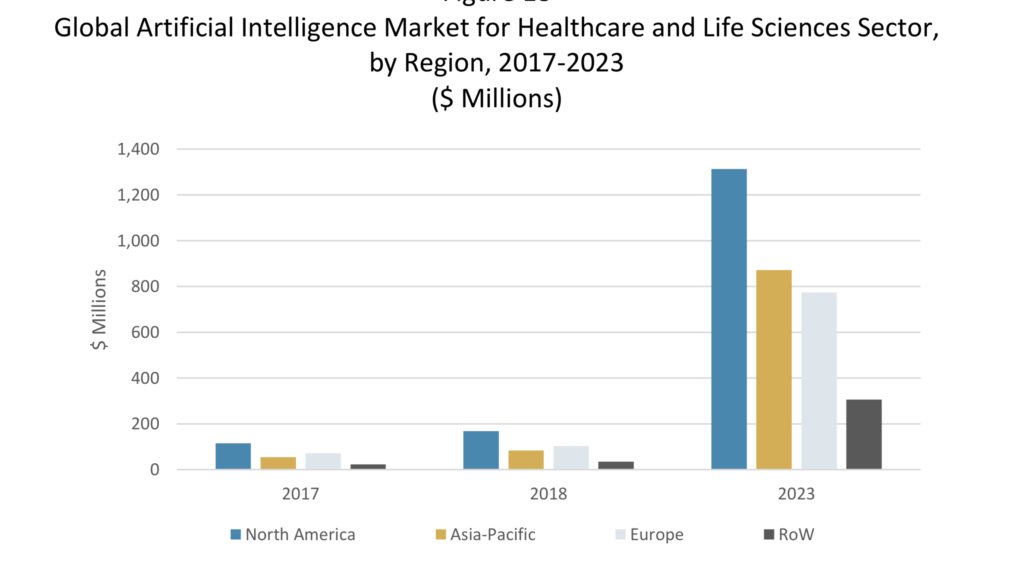An Epic use of Machine Learning

Moving into the next phase of digitized healthcare, Epic Systems needs to continue to develop, test, and implement its machine learning capabilities.
Epic Systems is a leader in the US healthcare software field and its core product is an electronic health record (EHR) system. Electronic health records are files that are used to store patient information relating to their past, current, and future treatments. Currently Epic Systems stores electronic medical records of over 200 million Americans and is the leader in market share relative to other EHR companies [1].
Medical misdiagnosis is a major cause of mistreatment in the United States. Misdiagnosis and medical errors are both a financial strain on the healthcare system and leads to pain and suffering among patients [2]. Machine learning paired with medical records has already shown value at predicting suicide risk [3] and at predicting a range of clinical problems and outcomes [4]. With the sum total of the data they currently possess, Epic can improve health outcomes using artificial intelligence. Rather than simply storing patient data, Epic is trying to position themselves to enable physicians and nurses to more directly benefit from the data. Considering the scale at which they currently operate, even marginal improvements in diagnosis or treatment plans caused by machine learning could benefit thousands of people.


Their most prominent efforts to date have revolved around partnerships with other organizations. In conjunction with Microsoft, Epic rolled out a system-wide solution for Oscher Health System in Louisiana [10]. The design of this program is to allow physicians and staff to use the predicative power of the data to identify gaps in treatment and recognize root-causes. Epic has also taken steps to allow for interoperability between its proprietary software and that of firms developing dedicate healthcare artificial intelligence software. Last year it created an integration with Nuance, a machine learning driven voice documentation tool for physicians that also incorporates machine learning performance monitoring analytics [11].
Moving forward, I think Epic needs to be more aggressive in their approach to investigating artificial intelligence. The growth of the artificial intelligence market and the need for improved diagnostic tools leaves white space for Epic to expand in this area. In order to fulfill their mission as an organization in the healthcare field and to continue to create value as a business, they need to hasten their efforts to develop and implement solutions that incorporate artificial intelligence.
To accomplish this Epic should consider expanding through acquisition and an aggressive recruitment strategy to build out their own internal capabilities. With their current integration with patient health records I believe they are uniquely situated to motivate teams to develop this capability and therefore succeed. Expanding via acquisition would be an efficient way to move more strongly into this field. Epic, as a privately held company, also has some flexibility in determining which companies to acquire. Beyond acquisitions, Epic should also build out an internal department focused on developing these machine learning capabilities. Making this somewhat easier to accomplish, they are headquartered in Madison, Wisconsin and are near a top-15 computer science university [12].
Thinking about the implications of the incorporating artificial intelligence into Epic’s health records, how can they ensure they have the trust of consumers with using their data to feed the artificial intelligence algorithms? The second side of the equation is healthcare providers, how can Epic encourage physicians to use the new recommendations as one additional tool in their diagnosis process?
Word Count: 766
Sources
[1] Healthcare Analytics: Technologies and Global Markets, accessed via BCC Research. Neha Maliwal. November 2017. Accessed November 9, 2018.
[2] Khullar, D., Jha, A., & Jena, A. (2015). Reducing Diagnostic Errors — Why Now? The New England Journal of Medicine, 373(26), 2491-2493. Accessed November 8, 2018.
[3] Simon, G. E., Johnson, E., Lawrence, et. al. Predicting suicide attempts and suicide deaths following outpatient visits using electronic health records. The American Journal of Psychiatry. May 24, 2018. Accessed November 10, 2018.
[4] Rajkomar, Alvin, et al. “Scalable and Accurate Deep Learning with Electronic Health Records.” Nature News, Nature Publishing Group, 8 May 2018, www.nature.com/articles/s41746-018-0029-1. Accessed November 10, 2018.
[5] O’Donnell, Jayne. “Second Study Says Medical Errors Third-Leading Cause of Death in U.S.” USA Today, Gannett Satellite Information Network, 4 May 2016, www.usatoday.com/story/news/politics/2016/05/03/second-study-says-medical-errors-third-leading-cause-death-us/83874022/. Accessed November 7, 2018.
[6] Wiggs, Jonathan. “Partners Launches $1.2 Billion Electronic Health Records System – The Boston Globe.” BostonGlobe.com, The Boston Globe, 1 June 2015, www.bostonglobe.com/business/2015/05/31/partners-launches-billion-electronic-health-records-system/oo4nJJW2rQyfWUWQlvydkK/story.html. Accessed November 9, 2018.
[7] Artificial Intelligence: Applications and Global Markets, accessed via BCC Research. BCC Research Staff. November 2018. Accessed November 9, 2018.
[8] AMA launches collaborative data project. By: Arndt, Rachel Z., Modern Healthcare, 01607480, 10/23/2017, Vol. 47, Issue 43. Accessed November 9, 2018.
[9] “AMA Integrated Health Model Initiative (IHMI) Collaboration Ecosystem.” AMA Integrated Health Model Initiative (IHMI) Collaboration Ecosystem, 2018, ama-ihmi.org/. Accessed November 9, 2018.
[10] Ochsner Online Newsroom. “Ochsner Health System Adopts New AI Technology to Save Lives in Real-Time | Ochsner Online Newsroom.” Online Newsroom, Ochsner Health System, 28 Feb. 2018, news.ochsner.org/news-releases/ochsner-health-system-adopts-new-ai-technology-to-save-lives-in-real-time. Accessed November 8, 2018.
[11] “Nuance and Epic Join Forces on Artificial Intelligence to Revolutionize Disabled Veterans Accessibility to Health IT.” Business Wire, 21 Feb. 2017, www.businesswire.com/news/home/20170221005625/en/Nuance-Epic-Join-Forces-Artificial-Intelligence-Revolutionize. Accessed November 8, 2018.
[12] “The Best Computer Science Programs in America, Ranked.” U.S. News & World Report, U.S. News & World Report, www.usnews.com/best-graduate-schools/top-science-schools/computer-science-rankings. Accessed November 9, 2018.



This article talks about potential for using machine learning for reducing medical misdiagnosis. I think this article was interesting because it talked about the opportunity for Epic, an EHR system company, to use machine learning. I am not sure if it is in Epic’s best interest to start suggesting diagnosis to physicians through its medical records. I do agree that Epic is in a great position to do so because it has access to patients’ medical records (Epic’s leading market share helps tremendously here because it has the most access to medical records), but suggesting diagnosis might make Epic vulnerable to being responsible if the suggest diagnosis is incorrect. Epic could take a similar approach as Watson in framing its diagnosis as “suggestions” and complementary to a physicians diagnosis, but Watson is also under fire currently for the same reasons. Even if Epic is not lawfully responsible in case of a misdiagnosis, but the medical community and even the public may hold Epic accountable.
On your point about Epic getting access to data to feed their machine learning algorithms, I am not sure if this is possible with the protection of medical information through HIPAA.